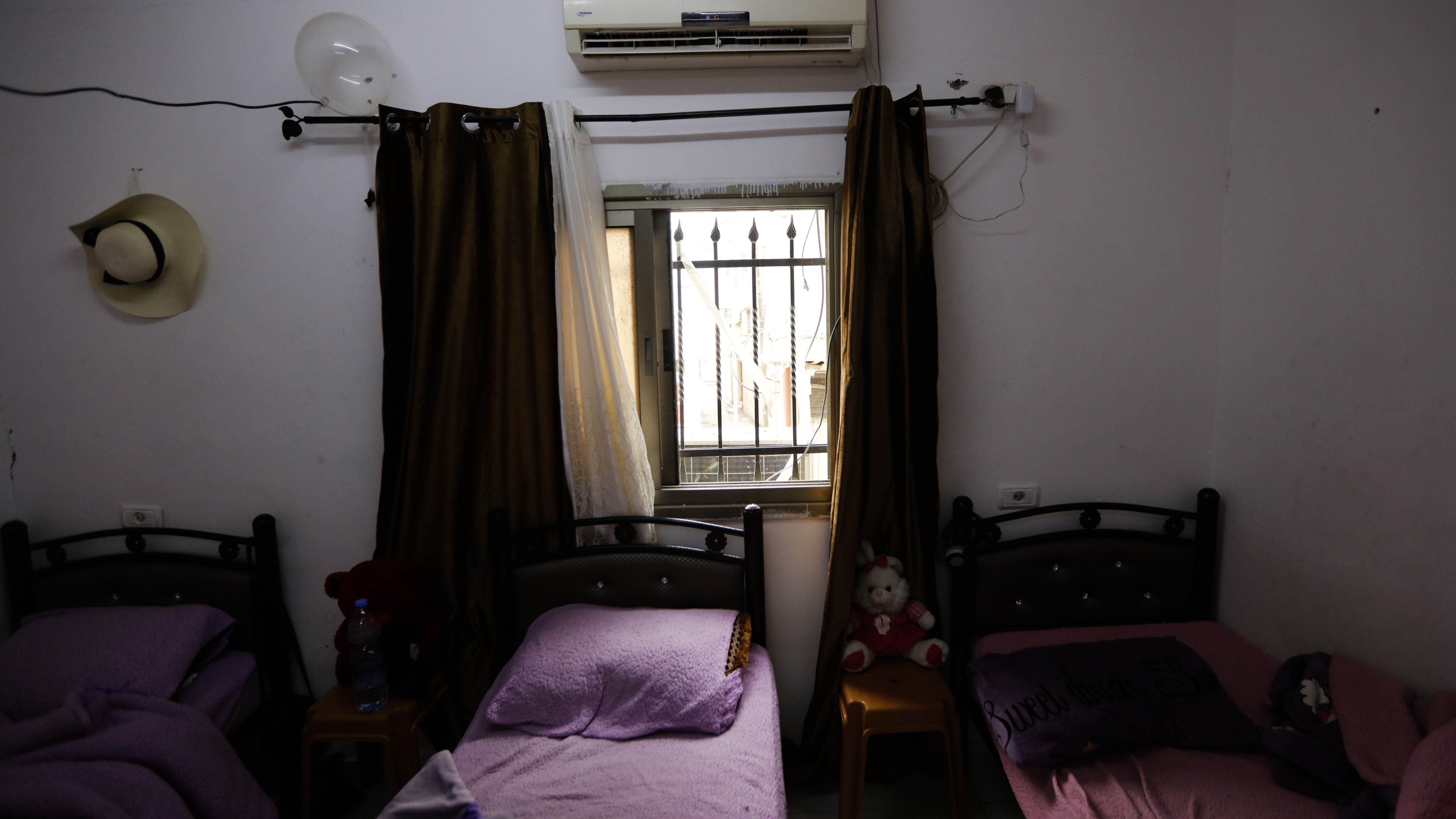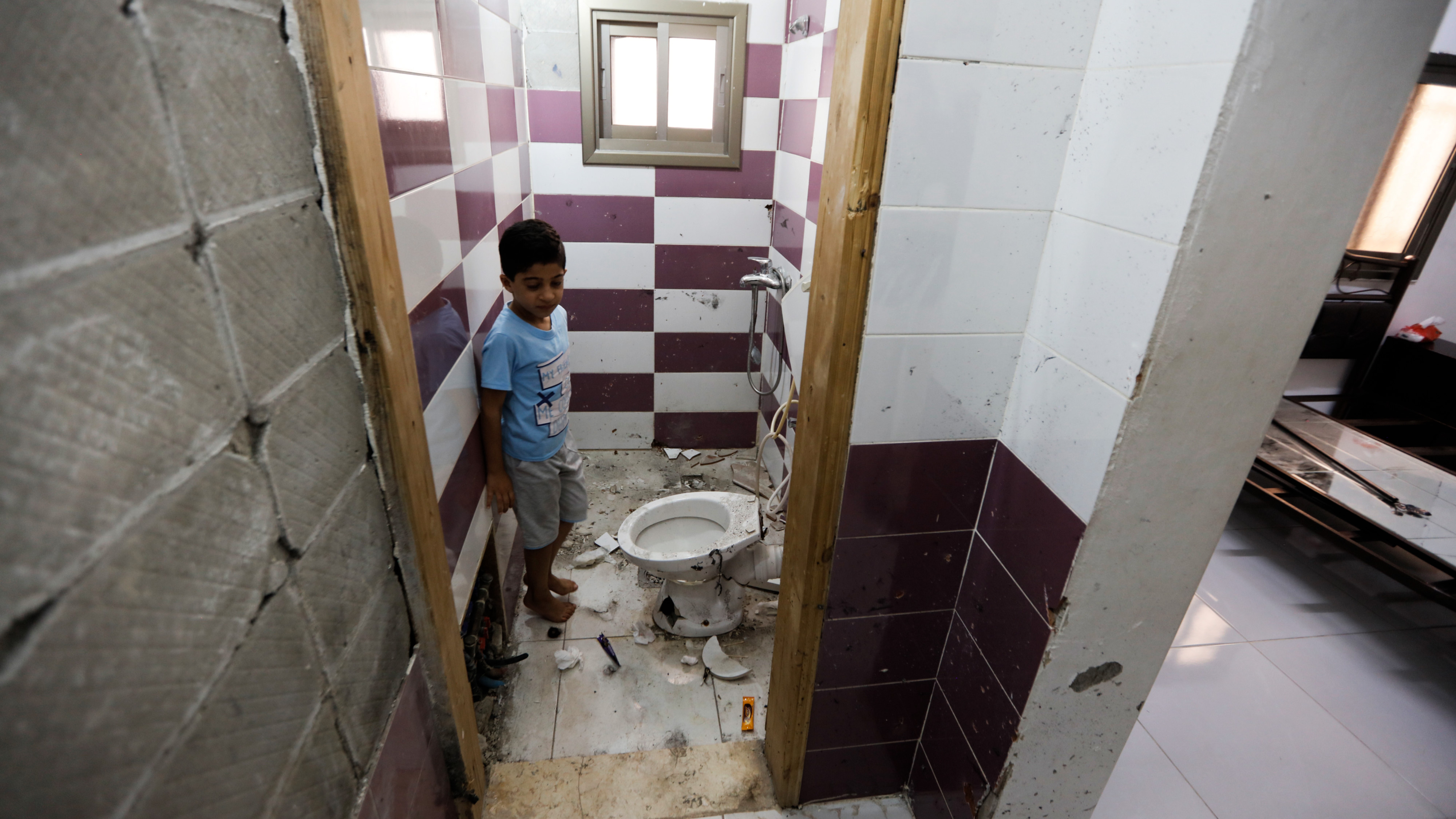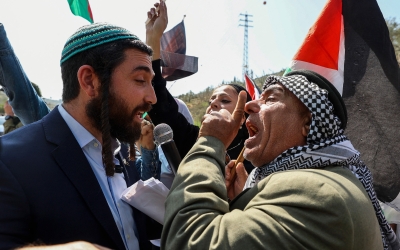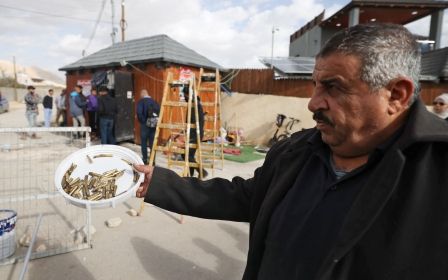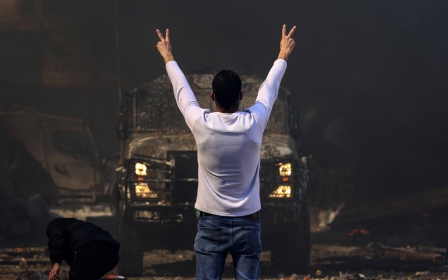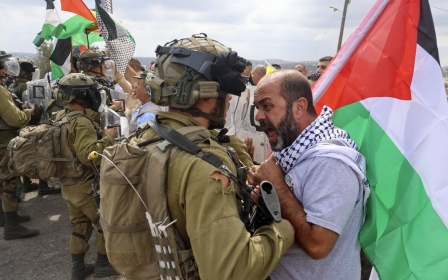Aqbat Jabr camp: Latest target of Israel's deadly West Bank raids
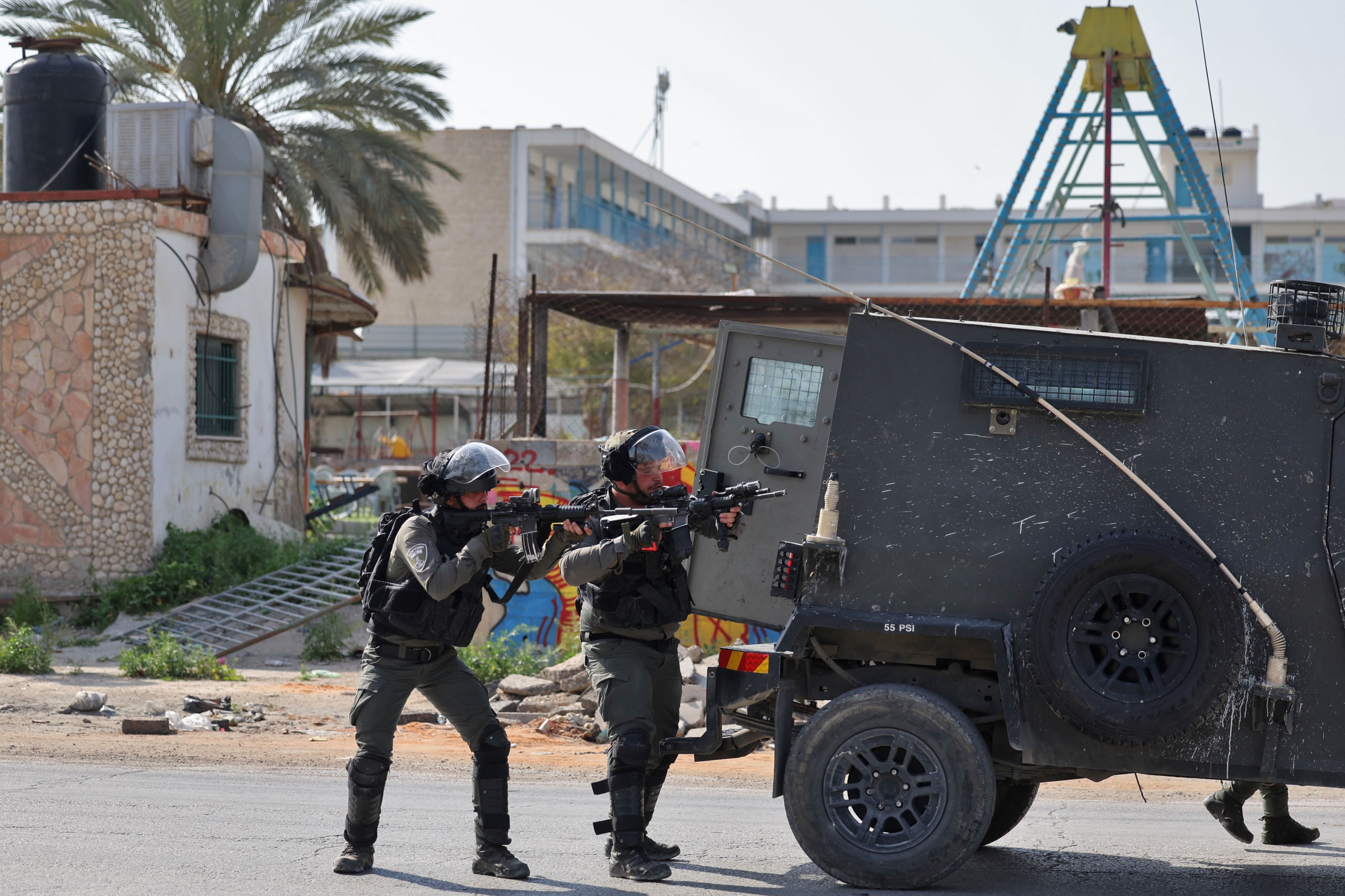
Fidah Muqbil had to relive the most traumatic night of her life when the Israeli army raided her neighbourhood again on 25 May.
Under the cover of nightfall, troops began a large-scale operation in the Aqbat Jabr refugee camp in the occupied West Bank where she lives.
The camp, located southwest of Jericho, was surrounded from every direction and effectively put under siege.
Dozens of armoured military vehicles filled the alleys, accompanied by foot soldiers and snipers stationed on rooftops.
Muqbil, 19, and her younger siblings cowered alone in their home as the hours-long operation unfolded.
New MEE newsletter: Jerusalem Dispatch
Sign up to get the latest insights and analysis on Israel-Palestine, alongside Turkey Unpacked and other MEE newsletters
Their only comfort was their father's voice over the phone, video calling them from a hospital room in Ramallah while caring for their mother, who had been wounded in a similar Israeli raid a few weeks prior.
"Every loud sound sent me back to that night," Muqbil told Middle East Eye, referring to the morning of 1 May.
That day, around 20 Israeli soldiers violently broke into her house by bombing the door and wounding Muqbil's mother.
"Everyone was asleep. It was 6:00 am. I heard something explode, I thought it was our gas bottle. I could hear my mum screaming," the teenager said, recalling the moment her mother was struck by shrapnel.
Before she could process what was happening, a soldier shoved her into the living room.
"I was terrified. All I could see was destruction. I could barely stand. I thought I was going to throw up," she added.
The soldiers then dragged the neighbours into the house, Muqbil said, forcing everyone to hide under the dining table in the dark, surrounded by chairs, swirling dust, and loud sounds.
"We couldn't even see each other with all the chaos," she said.
For two and a half hours, everyone sat like that. During that time, an Israeli sniper stationed at her bedroom window shot and wounded at least three Palestinians, including 17-year-old Jibril Muhammad al-Lada'a, who was hit in the head and later died in hospital.
'All I could see was destruction... I thought I was going to throw up'
- Fidah Muqbil
Nearly a month later, Muqbil has had to live through two more large-scale Israeli raids in her neighbourhood.
The trauma she and her siblings lived through still affects them, she says, bringing their life to a standstill.
Her wedding, originally scheduled on 27 May, has been cancelled, while her seven-year-old brother Karam Muqbil still needs constant reassurance and support.
Glancing at her sister asleep in the afternoon, she adds that they are only able to sleep when the sun rises.
Trauma and lifelong disabilities
In recent months, Aqabat Jabr has been a constant target for lethal Israeli military operations, bringing death and destruction to Jericho, a tourist city often less prone to Israeli violence than other places in the West Bank.
The Aqabat Jabr camp was established in 1948 to shelter refugees who were expelled from their homes by the Zionist militia to make way for the establishment of the State of Israel.
Today it's home to 30,000 people and is considered the largest camp in the West Bank in terms of surface area.
The recent raids in the camp follow a trend of growing deadly assaults by Israeli troops on cities across the West Bank amid a resurgence of armed resistance by Palestinians.
Much like in Nablus, Jenin, Tulkarem, and Tubas, Jericho has seen the emergence of a new resistance group in 2022, called the Aqbat Jabr Brigade.
The group and the camp came under the spotlight in February when Israeli soldiers killed five members of the brigade in a "15-minute-raid".
Since then, four more Palestinians in the camp have been killed by Israeli forces, including two children: 17-year-old al-Lada'a and 15-year-old Mohamed Faiz Balhan.
Locals say that these raids, which have resulted in the arrests of over 100 Palestinians, are having long-lasting effects on the residents.
Many gunshot victims are facing lifetime disabilities and the children of the camp are traumatised.
During the latest raid, Israeli gunfire wounded 13 people, and 14 others were detained. Soldiers also broke down doors, ransacked and destroyed houses, and used stun grenades, causing panic in civilian neighbourhoods.
"The snipers shot at anybody moving in the streets," Jamal Aweidat, the head of Aqbat Jaber's popular committee, told MEE.
"No one knew what to do; many kids were so scared that they wet their pants during the raid."
'Many kids were so scared that they wet their pants during the raid'
- Jamal Aweidat, head of Aqbat Jaber's popular committee
Overall, Israeli fire has killed at least 118 Palestinians in the occupied West Bank and East Jerusalem this year, including 18 children. A further 34 have been killed in the Gaza Strip, including six children.
Palestinians have killed at least 19 Israelis in the same period.
The Palestinian death toll in the West Bank could reach well over 280 fatalities by the end of 2023 if the current rate of killings continues, which would mark a 67 percent increase from last year's tally of 167, which is already the highest recorded in nearly two decades.
Counterproductive raids
Israeli media says the operations in Aqbat Jabr are aimed at squashing a resurgence of resistance in the camp.
However, Saleh Sanhourie, a political and social activist, said that instead of stifling the growth of armed groups, the intensity and frequency of military operations are having a counter-effect.
"This fourth generation of refugees don't see a future for themselves under the occupation and despite the ongoing attacks, they don't have anywhere else to go. So they are turning to armed resistance," Sanhourie told MEE.
"They don't belong to any political parties and are not funded by anyone," he added.
Sanhourie and Aweidat stressed that western media fails to show the power imbalance between Israel's high-ranking military attacking a small group of young people who spend the little money they have to buy their guns.
"This is how they justify killing and attacking us when in reality they turned our homes into a war zone," Sanhourie said.
"They use bulldozers, rockets, fighter jets, drones, and huge amounts of armed soldiers against us."
Punitive measures
On top of the escalation in military violence in the camp, Israel regularly implements punitive measures against civilians, such as revoking work permits from people in the camp.
"Anyone whose relative has been killed or put in jail is affected," said Sanhourie.
"They are punishing all of us, which is affecting our economy," the activist added, arguing that Israel wants to plant resentment in the community for those who resist.
However, in Aqbat Jabr, it is having the opposite effect, as everyone in the camp is "standing strong together, in harmony".
The collective punishment policies are also extended to Jericho, a popular tourist destination through which travellers visiting the West Bank arrive.
Twice this year, Israeli forces put Jericho under siege for weeks at a time, costing the tourism sector tens of millions of dollars, according to official Palestinian estimates.
The situation in the Aqbat Jabr refugee camp is not unique.
Israeli forces are increasingly targeting refugee camps across the occupied West Bank as seen in Jenin refugee camp, Nur Shams refugee camp in Tulkarem and Shuafat refugee camp in Jerusalem.
But as raids get more deadly and intense, more armed groups seem to emerge, defying Israel's occupation and likely facing further violence from the military.
Middle East Eye delivers independent and unrivalled coverage and analysis of the Middle East, North Africa and beyond. To learn more about republishing this content and the associated fees, please fill out this form. More about MEE can be found here.


